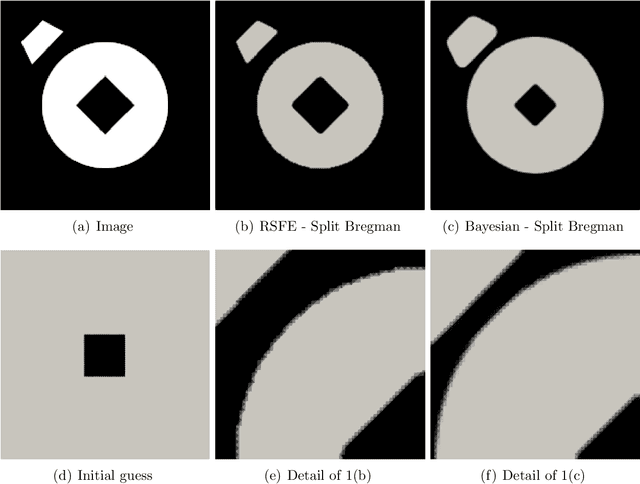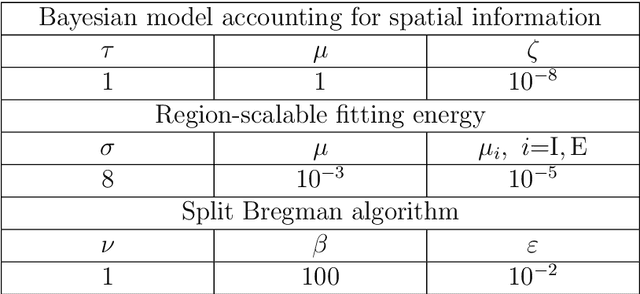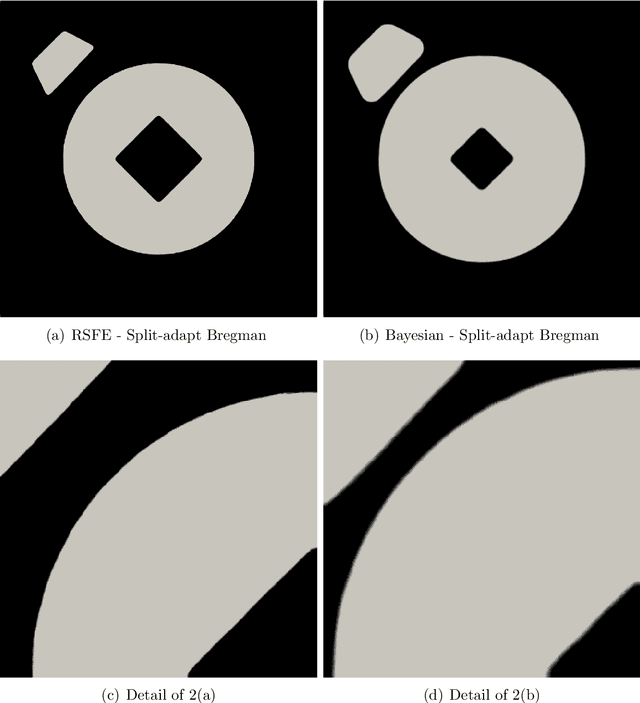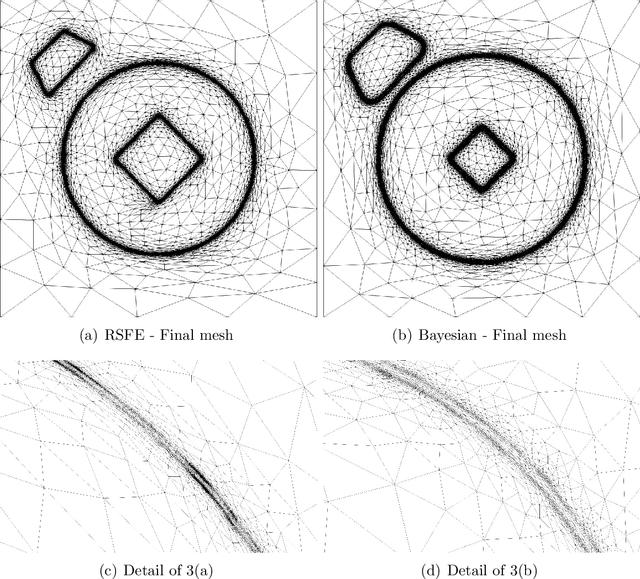Anisotropic mesh adaptation for region-based segmentation accounting for image spatial information
Paper and Code
Dec 19, 2021



A finite element-based image segmentation strategy enhanced by an anisotropic mesh adaptation procedure is presented. The methodology relies on a split Bregman algorithm for the minimisation of a region-based energy functional and on an anisotropic recovery-based error estimate to drive mesh adaptation. More precisely, a Bayesian energy functional is considered to account for image spatial information, ensuring that the methodology is able to identify inhomogeneous spatial patterns in complex images. In addition, the anisotropic mesh adaptation guarantees a sharp detection of the interface between background and foreground of the image, with a reduced number of degrees of freedom. The resulting split-adapt Bregman algorithm is tested on a set of real images showing the accuracy and robustness of the method, even in the presence of Gaussian, salt and pepper and speckle noise.
 Add to Chrome
Add to Chrome Add to Firefox
Add to Firefox Add to Edge
Add to Edge